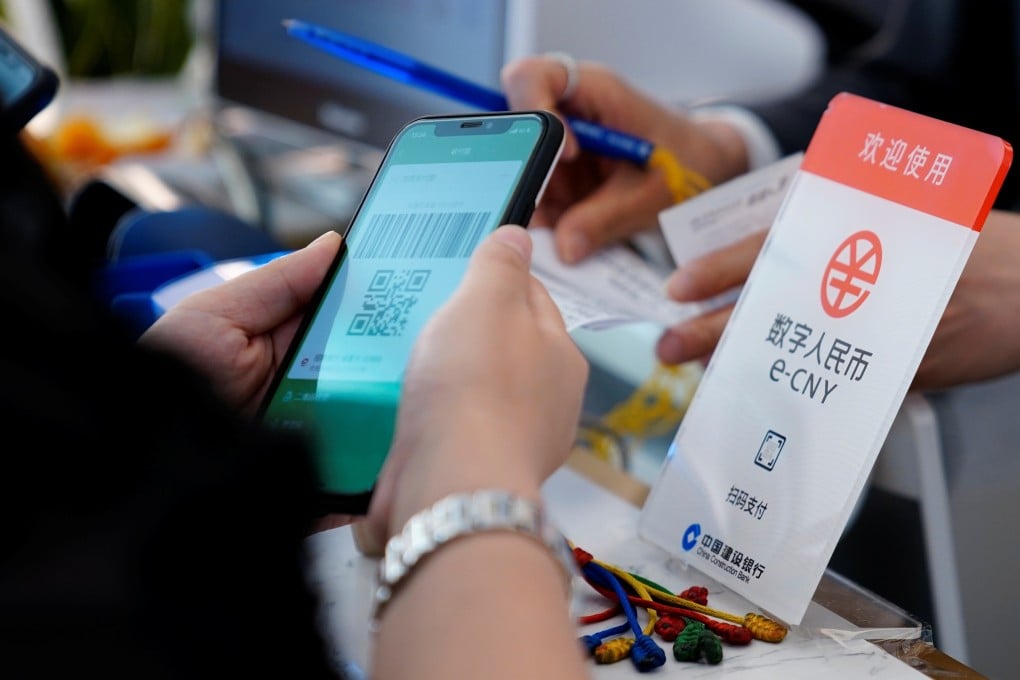China digital currency: overseas visitors free to use e-yuan at 2022 Winter Olympics in Beijing
- During the 2022 Winter Olympics in Beijing, self-service carts, vending machines and stores will issue wearable payment devices that will allow easy use of the digital yuan
- Trials of the e-yuan started two years ago, with 34.5 billion yuan (US$5.3 billion) spent so far through 70.8 million transactions

Overseas visitors will be granted access to China’s digital currency without the need to open a local bank account during trials at the 2022 Winter Olympics in Beijing, according to a central bank white paper.
“We will continue to steadily push forward with research and pilots for the digital yuan, but we won’t preset a timetable [for the launch],” the PBOC said.
During next year’s Winter Olympics, self-service carts, vending machines and stores will be authorised to issue wearable payment devices such as gloves, badges and clothes that will allow easy use of the digital yuan.
Earlier this month, deputy PBOC governor Fan Yifei confirmed that the Winter Olympics in 2022 would be the next key trial, adding that the central bank had “the confidence to continue increasing the scope of the trials”.